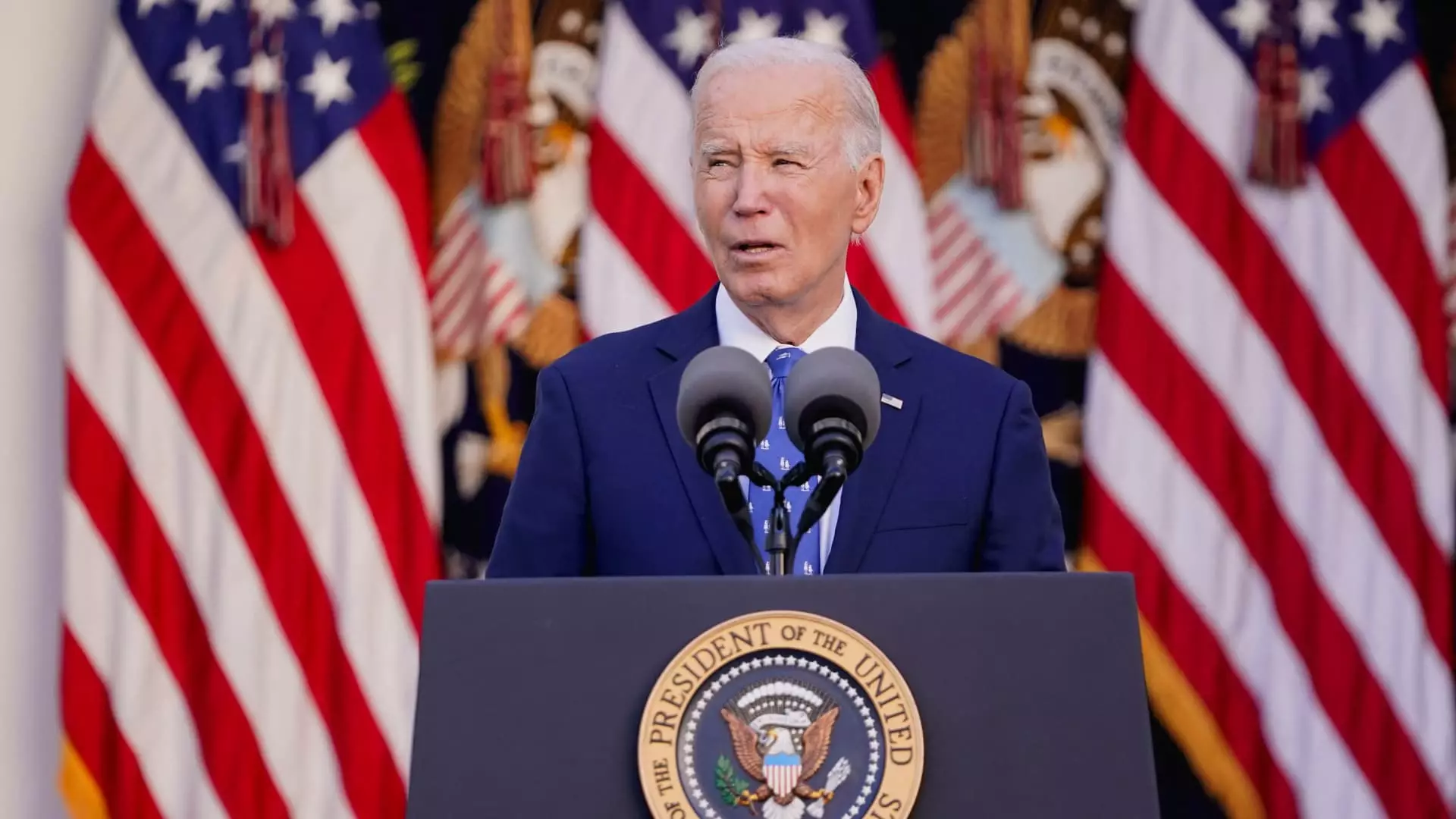The political landscape in Syria is witnessing a dramatic shift, with President Joe Biden expressing optimism following the collapse of Bashar al-Assad’s long-reigning dictatorship. In a recent address from the White House’s Roosevelt Room, Biden characterized the event as a “historic opportunity” for the beleaguered Syrian populace who have endured years of tyranny and conflict. However, he also underscored the complexities and risks that accompany such transitions, marking this juncture as both a moment of potential and peril.
Biden’s remarks reflected a cautious optimism, emphasizing the necessity of navigating the uncertain waters of political change in Syria. The unexpected upheaval presents a unique chance for Syrian citizens to redefine their governance and societal structure, yet the path forward remains fraught with challenges. “As we turn to the question of what comes next,” Biden stated, “the United States will work with our partners and the stakeholders in Syria to help them seize this opportunity to manage the risk.” This commitment indicates a strategic U.S. stance aimed at supporting Syria’s neighbors, including Jordan, Iraq, Lebanon, and Israel, during this delicate transition.
Furthermore, the message conveyed by Biden highlights that U.S. involvement will transcend mere political statements, as the American administration plans to engage in active collaboration with regional allies. This support is geared toward stabilizing the region and ensuring that the political vacuum does not lead to chaos that could be exploited by extremist groups.
Central to Biden’s address was the ongoing mission against ISIS, highlighting the potential for the extremist group to capitalize on the shifting dynamics in Syria. “We’re clear-eyed about the fact that ISIS will try to take advantage of the new vacuum to reestablish its capability and create a safe haven,” Biden remarked, asserting that U.S. forces have already undertaken precise military actions to thwart these threats. The ongoing airstrikes reflect a proactive approach to preemptively dismantling ISIS’s foothold, demonstrating the urgency of maintaining security in an already volatile region.
However, Biden’s concerns weren’t limited to ISIS; he acknowledged that certain factions within the rebel coalition that contributed to Assad’s downfall harbor their own problematic pasts. This critical observation compelled the administration to adopt a vigilant stance, stating that future evaluations of these groups will depend on their actual behavior rather than their current rhetoric. Such scrutiny is vital as the U.S. seeks to foster a stable political environment that discourages extremism and promotes human rights.
The road to establishing a legitimate, representative government in Syria will arguably be one of the most arduous challenges in the aftermath of Assad’s regime. Biden articulated an intention to assist “all Syrian groups” in crafting an independent government, signifying a shift towards a more inclusive political framework. Additionally, the promise of humanitarian aid amid a backdrop of 13 years of civil strife serves as a recognition of the dire humanitarian crisis in the country.
Biden also took the opportunity to address the plight of Austin Tice, an American journalist reportedly still alive after being abducted in Damascus in 2012. His administration’s commitment to securing Tice’s return underscores the importance of reintegrating American narratives and experiences into the broader context of Syrian affairs.
Given the regional and global implications of Assad’s resignation, Biden’s address reflected a diplomatic acknowledgment of the shifting balances of power. He noted that Russia, Iran, and Hezbollah, Assad’s staunch allies, are now “far weaker” than they were at the outset of his presidency, suggesting a potential reconfiguration of alliances in the Middle East. This dynamic change opens up new avenues for diplomacy, yet it also necessitates a carefully calibrated U.S. response to ensure that newfound power vacuums are not filled by malicious entities.
The toppling of Syria’s long-standing dictatorship marks a critical turning point in the nation’s tumultuous history. While the chance for a more promising political future exists, significant challenges remain. The United States’ unwavering commitment to support Syria, coupled with a vigilant assessment of both opportunities and risks, will be imperative as the country embarks on its difficult journey toward stability and peace.


Leave a Reply